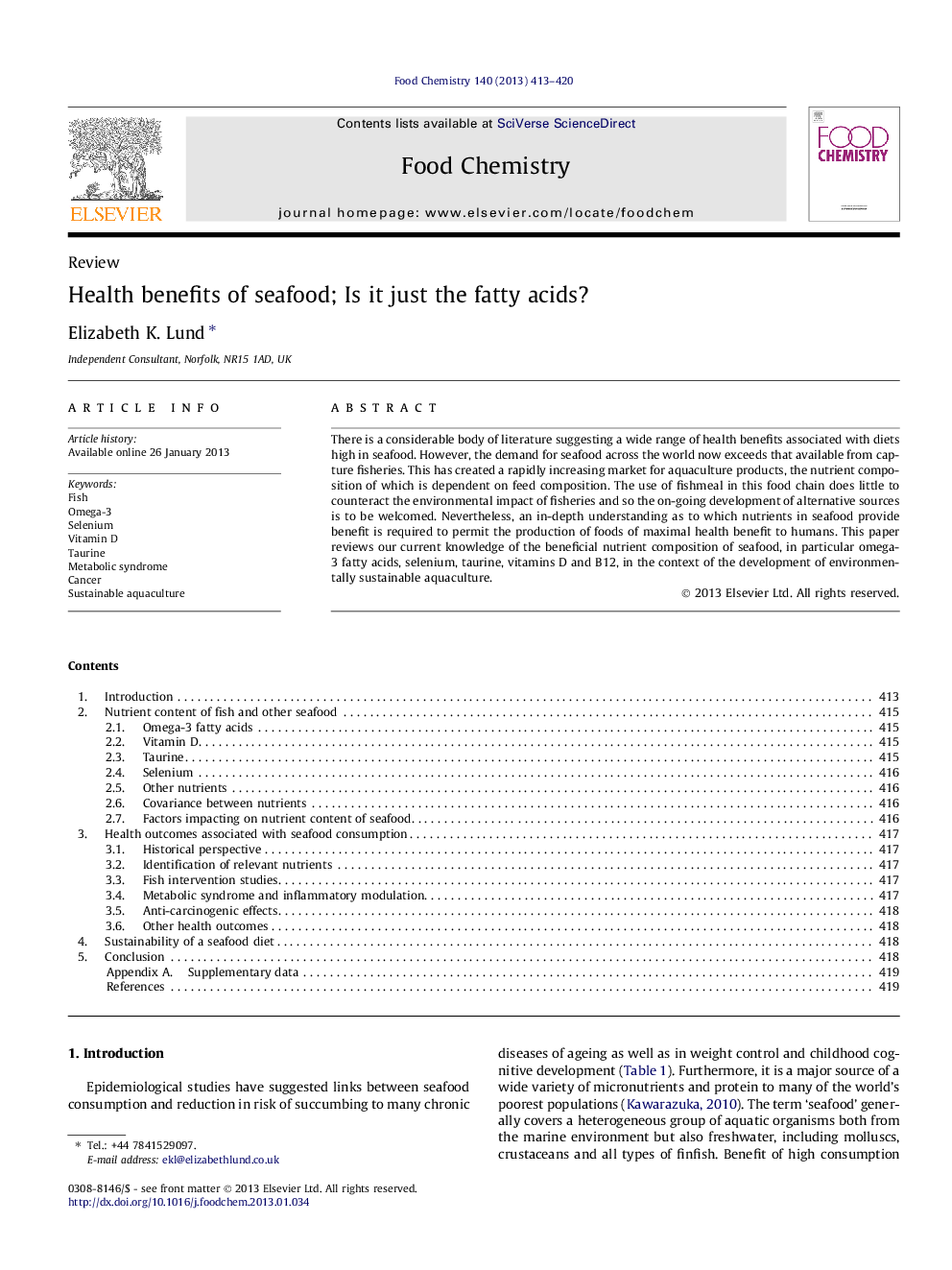| Article ID | Journal | Published Year | Pages | File Type |
|---|---|---|---|---|
| 1184029 | Food Chemistry | 2013 | 8 Pages |
There is a considerable body of literature suggesting a wide range of health benefits associated with diets high in seafood. However, the demand for seafood across the world now exceeds that available from capture fisheries. This has created a rapidly increasing market for aquaculture products, the nutrient composition of which is dependent on feed composition. The use of fishmeal in this food chain does little to counteract the environmental impact of fisheries and so the on-going development of alternative sources is to be welcomed. Nevertheless, an in-depth understanding as to which nutrients in seafood provide benefit is required to permit the production of foods of maximal health benefit to humans. This paper reviews our current knowledge of the beneficial nutrient composition of seafood, in particular omega-3 fatty acids, selenium, taurine, vitamins D and B12, in the context of the development of environmentally sustainable aquaculture.
► Seafood appears to confer a wide range of benefits related to healthy ageing. ► Seafoods are a vital source of protein in many developing countries. ► Micronutrients include n-3 fatty acids, selenium, vitamins B12 and D and taurine. ► There is considerable covariance in nutrient intake associated with eating fish. ► Fish feed design must take into account both human nutrition and the environment.
